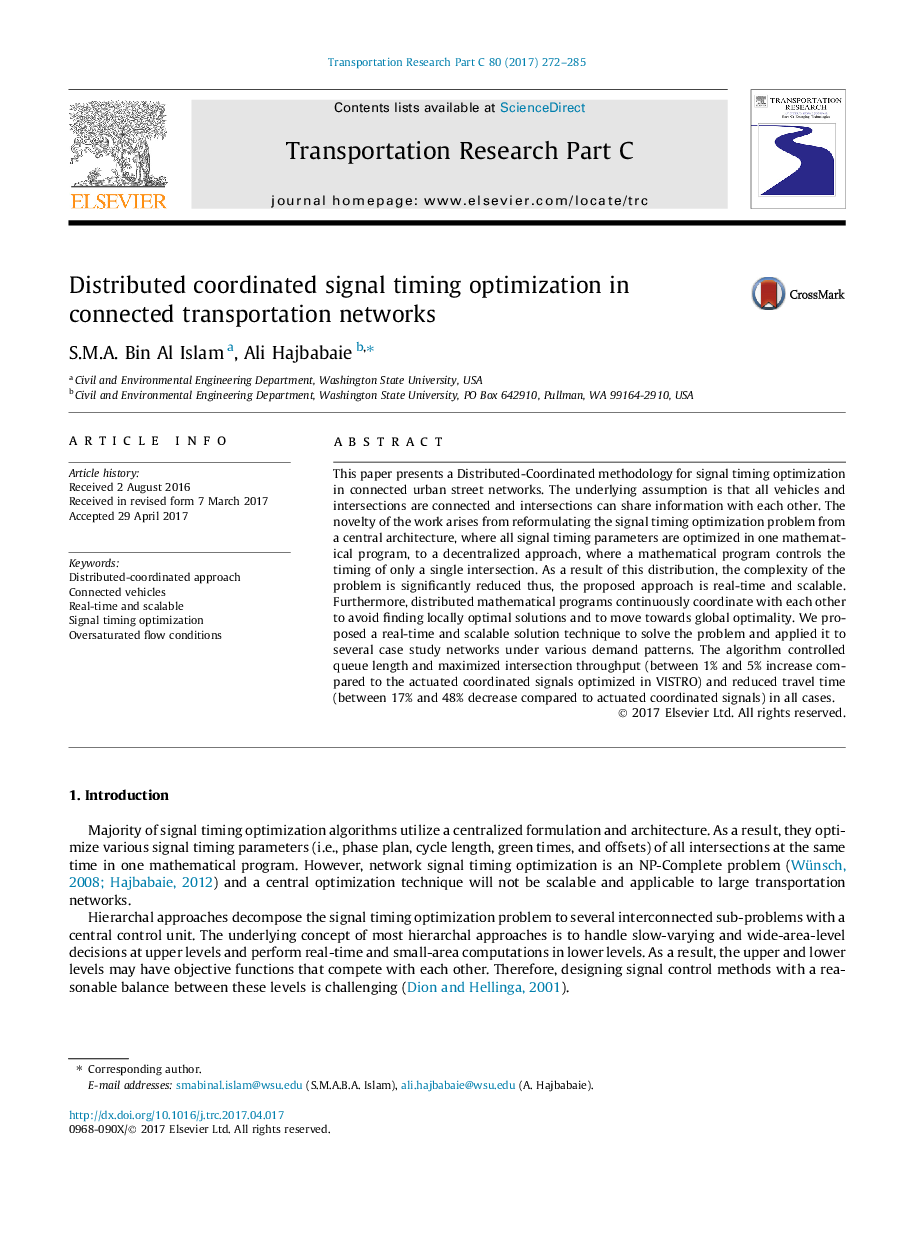| Article ID | Journal | Published Year | Pages | File Type |
|---|---|---|---|---|
| 4968450 | Transportation Research Part C: Emerging Technologies | 2017 | 14 Pages |
Abstract
This paper presents a Distributed-Coordinated methodology for signal timing optimization in connected urban street networks. The underlying assumption is that all vehicles and intersections are connected and intersections can share information with each other. The novelty of the work arises from reformulating the signal timing optimization problem from a central architecture, where all signal timing parameters are optimized in one mathematical program, to a decentralized approach, where a mathematical program controls the timing of only a single intersection. As a result of this distribution, the complexity of the problem is significantly reduced thus, the proposed approach is real-time and scalable. Furthermore, distributed mathematical programs continuously coordinate with each other to avoid finding locally optimal solutions and to move towards global optimality. We proposed a real-time and scalable solution technique to solve the problem and applied it to several case study networks under various demand patterns. The algorithm controlled queue length and maximized intersection throughput (between 1% and 5% increase compared to the actuated coordinated signals optimized in VISTRO) and reduced travel time (between 17% and 48% decrease compared to actuated coordinated signals) in all cases.
Keywords
Related Topics
Physical Sciences and Engineering
Computer Science
Computer Science Applications
Authors
S.M.A. Bin Al Islam, Ali Hajbabaie,
